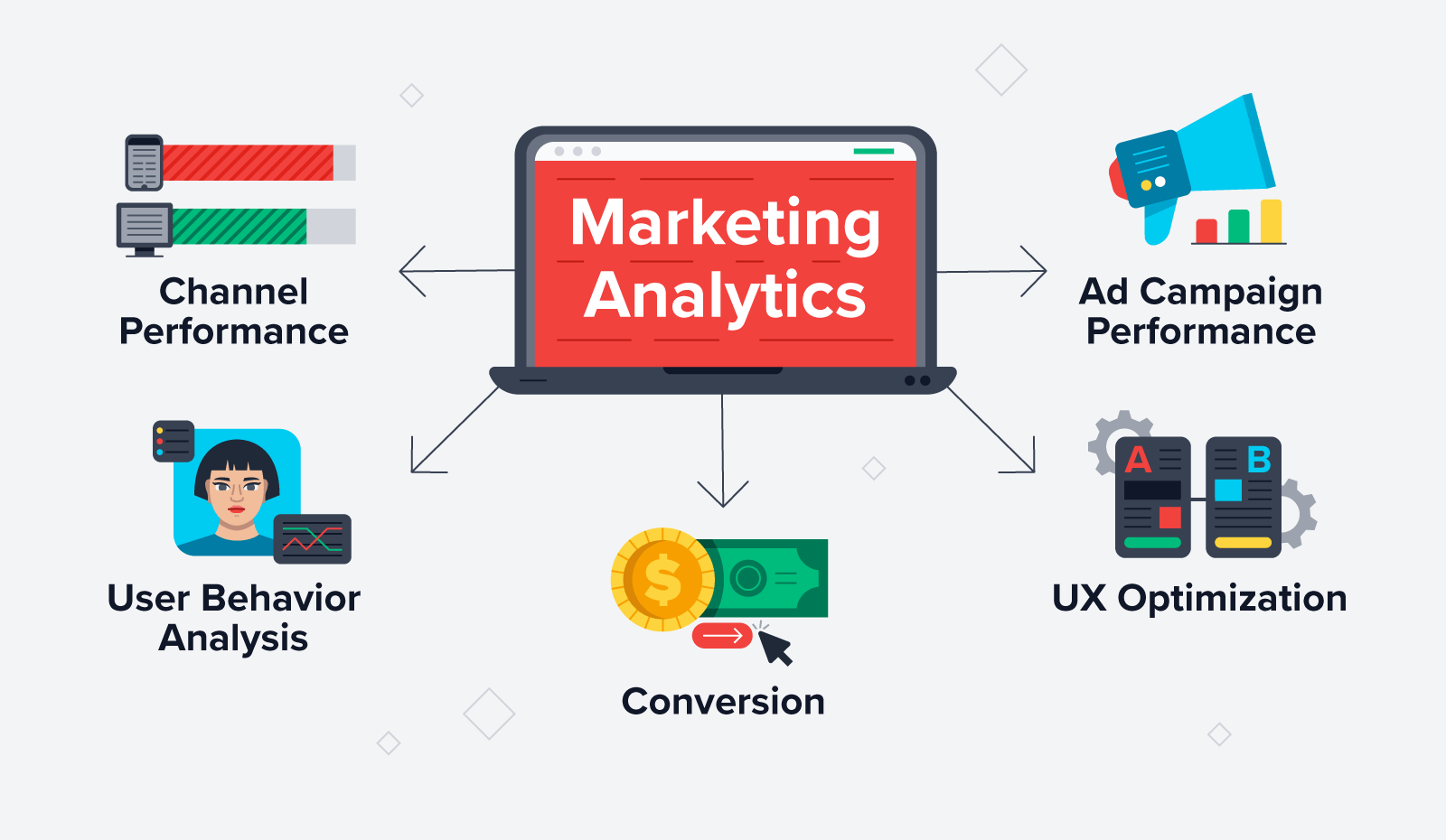In the current world that is characterized by rapid development of technology the most important aspect in designing effective marketing strategies is data. Data analytics is a powerful application of information and data which can revolutionize customer insights, campaign performance, and company’s overall growth. But there is too much information on the internet which sometimes becomes intimidating. For data analytics to benefit a firm, marketers must have adequate knowledge of this concept, underscoring the importance of digital marketing training for mastering data analytics.

What is Data Analytics in Marketing?
Data analytics in marketing is concerned with the use of large data sets to make sense of information that can be used in marketing. Additionally, this data can originate from websites, social media, emails, and customer feedback. It will help marketers to know the customers’ activities, assess the campaigns’ efficiency, and improve the marketing strategies.
The Importance of Data Analytics in Marketing
- Enhanced Customer Understanding: Enables the marketers to know the lifestyle and thoughts of the targeted population. Furthermore, customers’ information helps to identify and define customer profiles and segments; this is crucial in developing a personal and targeted marketing campaign for different audiences.
- Improved Campaign Performance: Data helps marketers monitor the performance of their campaigns as they progress. Other concrete measurements include CTR rates, conversion rates, and ROI, which help in promptly making changes and improvements.
Key Components of Marketing Data Analytics
- Data Collection: The first step in data analytics is technically data collection. Moreover, this can be based on information from web analytics tools such as Google Analytics, social media, websites, CRM systems, and other marketing technologies. Data cannot be relied upon to give accurate results if it is not complete.
- Data Analysis: With processed data, the next step is analysis. This can involve various techniques. These techniques range from basic descriptive statistics (e.g., average, median) to more advanced methods like predictive modeling and machine learning. The goal is to uncover patterns, correlations, and insights that inform marketing strategies.
- Data Visualization: Visualizing data through charts, graphs, and dashboards makes it easier to interpret and communicate insights. Tools like Tableau, Power BI, and Google Data Studio help marketers create visual representations of data. These tools make complex information more accessible and understandable.
Best Practices for Leveraging Data Analytics in Marketing
- Define Clear Objectives: Begin by defining specific objectives for your data analytics initiatives. This could mean more traffic to your website, higher conversion rates, or successful customer interaction – clear goals will help you focus your data collection and analysis efforts.
- Choose the Right Tools: Make sure to invest in analytics tools that will fit your business requirements and goals. Tools that can be used include google analytics for website data, hootsuite for social media reporting and hubspot for CRM and marketing automation.
- Focus on Key Metrics: Determine the important KPIs that will be relevant to your business. These might include CTR, conversion rate, CLV, and CAC, amongst others. It helps to target the key performance indicators to guarantee that you are measuring activities that really matter to your business.
- Stay Updated with Trends: This field is not static and there are innovations every now and then. Keep up to date concerning trends, tools and good practice. Regular innovation will ensure that your marketing techniques are always up to date.
Conclusion
Data analytics skills are now indispensable in marketing to anyone who wants their business to succeed in the digital era. Furthermore, through a data-driven approach that focuses on data aggregation, processing, analysis, and action, marketers are able to gain key audience intelligence, make informed decisions, and improve overall campaign performance. Moreover, it is time to accept it and realize how to leverage its ability to enhance marketing endeavours and reach business objectives.
Leads Dubai Training offers certified Digital Marketing courses. These courses cover essential areas like social media, Google Ads, SEO, content marketing, and analytics. It is ideal for individuals and companies in Dubai

